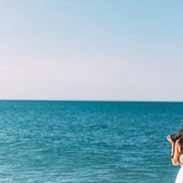ATI children Ch. 24 Enuresis and UTI’s – Flashcards
Unlock all answers in this set
Unlock answersquestion
Enuresis
answer
uncontrolled or unintentional urination that occurs after a child is beyond an age at which bladder control is acheived
question
UTI
answer
infection in any portion of the urinary tract
question
Enuresis: Primary: secondary:
answer
* inappropriate urination must occur at least 2 times a week for at least 3 months and at least 5 years old before diagnosing * Primary: child has never been free of bed wetting for any extended period of time * secondary: Child developed after development of urinary control
question
Risk factors for enuresis
answer
no clear etiology but may be related to: * family history of enuresis * disorders associated with bladder dysfunction * males * emotional factors
question
Assessment findings
answer
* alterations in toilet training, voiding behaviors, and BM habits * Hx of chronic or acute illnesses * emotional stress or family disruptions * family Hx of enuresis * increased intake at night
question
Nursing care to prevent enuresis
answer
* have child empty bladder at HS * encourage fluids during day and restrict in evening * avoid fruit,fruit drinks, and caffeinated drinks after 1600 * wear regular PJ and not diapers *positively reinforce * have child change bed linen after accident * avoid constipation, ^ fiber * wake up during night to void
question
Desmopressin acetate
answer
Antiduiretic hormone - reduces urine volume * given PO or nasal (nasal needs to be refrigerated) * Give at HS *restrict intake after dinner
question
Imipramine hydrochloride
answer
tricyclic antidepressant * inhibits urination * monitor for ^ suicidality * length of Tx. 6-8 weeks then plan gradual withdrawal *Give with food * Give 1 hr before bed * avoid sun exposure * DO NOT use any OTC meds
question
oxybutynin chloride
answer
anticholinergic * reduces bladder contractions
question
pyelonephritis
answer
inflammation of the upper urinary tract and the kidneys
question
Urosepsis
answer
bacterial infection
question
Risk factors for UTI's
answer
* urinary stasis * urinary tract anomalies * reflux within the urinary tract * constipation * onset of toilet training * uncircumcised male( not cleaned well) * females (urethra too close to rectum) * synthetic, tight underwear and wet bathing suits * sexual activity
question
S&S in infants of a UTI
answer
* increased irritability * screaming with urination * Poor feeding, vomiting, or failure to gain wt. * ^ thirst * frequent urination * straining with urination * foul smelling urine * fever *diaper rash * dehydration * seizure * pallor
question
S&S in children with UTI
answer
* ABD or back pain * pain with urination * poor appetite * vomiting * slowed growth * ^ thirst * enuresis, frequent urination *swelling of face * seizures *pallor * blood in urine * edema * HTN * tetany
question
Best methods for collecting UA in children < 2
answer
sterile catheterization and suprapubic aspiration( need a consent signed for this one)
question
Nursing actions for UTI diagnosis
answer
* consent signed for suprapubic * DO NOT have kid drink large amount of fluid, will dilute bacteria * send to lab STAT
question
If UA is + for UTI, UA will look like what?
answer
* pH weak acid or neutral alkaline * protein, glucose, ketones, leukocytes and nitrates will be positive
question
diagnostic testing: IV pyelogram (IVP) Dimercaptosuccinic acid scan
answer
* check allergy to iodine * sedate infants and young kids if required * NPO for cystoscopy and IVP *IVP requires bowel prep * may need to catheterize
question
Patient care for UTI's
answer
* encourage frequent voiding and complete emptying * encourage fluids * monitor output * tylenol for pain or other mild analgesic
question
ATB used for UTI's
answer
Depends on C&S PCN sulfonamides cephalosporins nitrofuratoin
question
pt teaching
answer
* educate on signs of reoccurring UTI's: dysuria, frequency, urgency * retract and clean foreskin *cotton underwear * keep diaper and underwear dry * maintain adequate hydration * NO bubble baths * encourage frequent voiding, and completely emptying of bladder using double voiding (void wait 5 min, then void again) *avoid sexual activity * void STAT after sex
question
complications of UTI's
answer
progressive kidney injury
question
A nurse is assessing an infant who has a suspected UTI. Which of the following are anticipated findings? Select all a. increase in hunger b. irritability c. decrease urination d. vomiting e. fever
answer
B,D,E Urine would be increased if pt has UTI
question
A nurse is assessing a child who has a UTI. Which of the following are clinical manifestations of a UTI? Select all a. night sweats b. swelling of the face c. pallor d. pale colored urine e. fatigue
answer
B,C,E swelling in face pallor fatigue
question
A nurse is teaching a parent of a child who has a UTI. Which of the following should the nurse include in the teaching? Select all a. wear nylon underpants b. avoid bubble baths c. empty bladder completely with each void d. provide information about clinical manifestations of infection e. wipe back to front
answer
B,C,D avoid bubble baths empty bladder provide info about infections
question
A nurse is planning care of a child who has a UTI. Which of the following should the nurse include? a. administer antidiuretic b. restrict fluids c. evaluate the child's self esteem d. encourage frequent voiding
answer
D- encourage frequent voiding
question
A nurse is caring for a child with enuresis. Which of the following is a complication of enuresis? a. UTI's b. emotional problems c. urosepsis d. progressive kidney disease
answer
B- emotional problems



